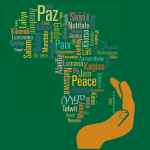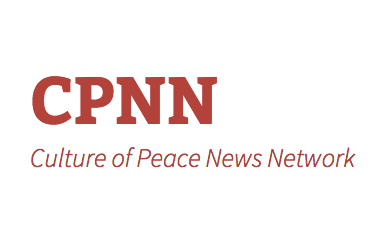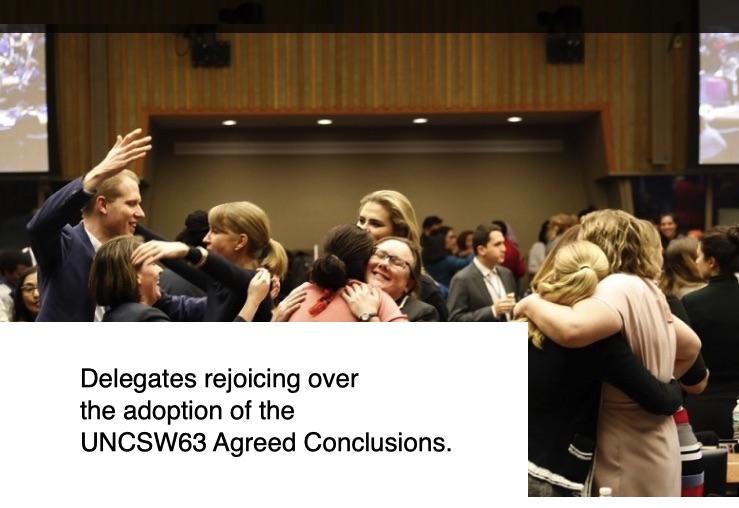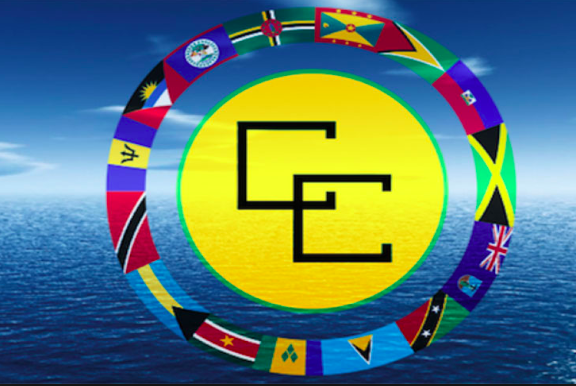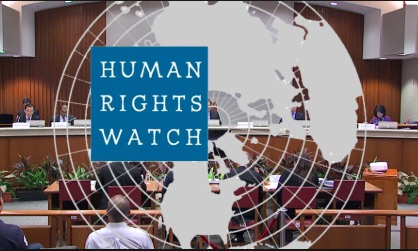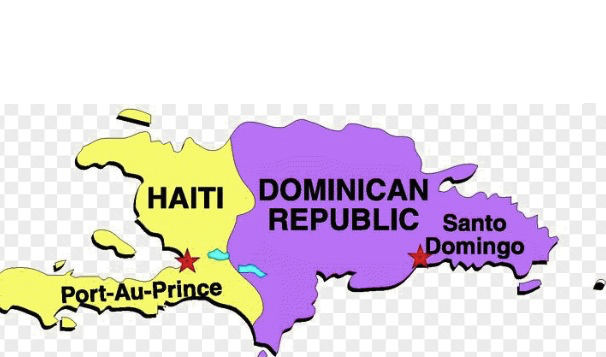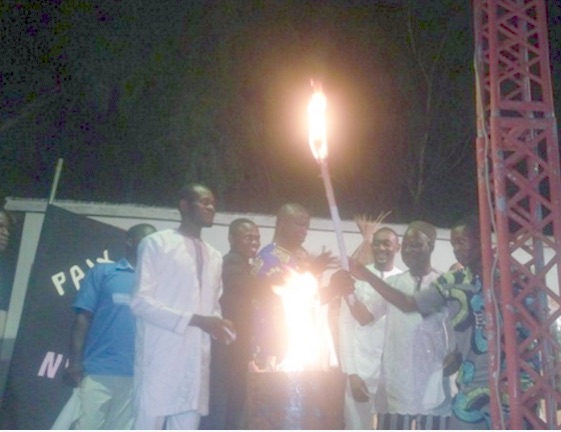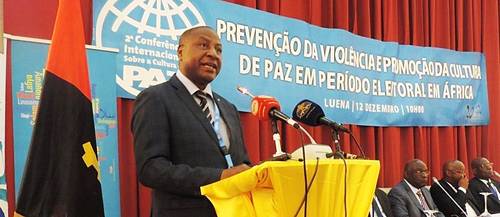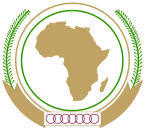-
Welcome to the
Network of Foundations and Research Institutions for the Promotion of a Culture of Peace in Africa
-
The Network's Meetings
News
CPNN (Culture of Peace News Network) bulletin of August 1, 2019
CULTURE OF PEACE CONFERENCES
This summer and fall there are international conferences for the culture of peace sponsored by organizations throughout the world.
CPNN (Culture of Peace News Network) bulletin of July 1, 2019
MASS PROTESTS AROUND THE WORLD
Around the world people are taking to the streets in nonviolent demonstrations to demand justice and democracy.
In some cases (Hong Kong, Russia and Algeria), the mass demonstrations have already led to some changes, while those in Kazakhstan, the Czech Republic, Sudan and Brazil have not yet achieved the desired results.
CPNN (Culture of Peace News Network) bulletin of June 1, 2019
LEADERSHIP FOR PEACE
In a time of bad news and confusion, we seek those who can lead us towards a future of hope and stability. Here are some good examples of leadership that we have cited recently in CPNN.
CPNN (Culture of Peace News Network) Bulletin of May 1, 2019
PRESS FREEDOM UNDER ATTACK
Freedom of the press is under attack around the world, with the biggest deterioration in North and South America. And the most spectacular and dangerous example is the arrest of Julian Assange of Wikileaks and the threat that he he may be extradited and tried by a kangaroo court in the United States.
According to Bruce Shapiro, the executive director of the Dart Center for Journalism and Trauma at Columbia University School of Journalism, the very essence of the press freedoms in the United States is under attack in the U.S. attempt to extradite and try Assange. He calls it an “attempt to criminalize investigative reporting.”
Not only freedom of the press, but also democracy, human rights and peace are under attack.
Daniel Ellsberg, himself the courageous whistle-blower of the Pentagon Papers that revealed the lies of the Vietnam War, puts it this way: “Without whistleblowers we would not have a democracy. And there have to be people to distribute work and publish it. Julian Assange has done that in a way in which other publishers have not been willing to. . . . it is now up to us to make sure that the First Amendment is preserved.”
United Nations experts, including the UN Special Rapporteur on extra-judicial executions, the UN independent expert on the right to privacy, and the UN Special Rapporteur on torture warned that the arrest and threatened extradition of Assange is a violation of his human rights, “including his freedom of expression, his right to a fair trial, and the prohibition of cruel, inhuman or degrading treatment or punishment.”
An example of how Wikileaks revelations promoted democracy comes from Kenya. Writing in Al Jazeera, Patrick Gathara describes how a report about government corruption was suppressed by that same government, but was obtained and revealed by Julian Assange and Wikileaks. Gathara states that “For once, Kenyans were afforded an unvarnished and detailed glimpse of the amount of national wealth that was being stolen by the very people tasked with protecting it.”
The list of Wikileaks evelations of government corruption is quite long, and it takes the journalist Alison Weir 8,000 words to describe them in the article we have reprinted in CPNN. Wikileads revealed “the U.S. government’s cover-up of torture, cruelty, the killing of civilians, spying on its own citizens and others. It exposed Democratic Party cheating and manipulation, the fraudulence of ‘Russiagate.’ It unmasked Israeli plans to keep Gaza on the brink of collapse, to use violence against Palestinian nonviolence, to make war upon civilians.” And the list could be even longer, if one includes examples like the corruption in Kenya mentioned above.
Although the United States is exerting pressure behind the scenes, the arrest was due to the actions of the governments of Ecuador and the UK.
For Noam Chomsky, it shows the global reach of the American empire: “why should the United States have the power to control what others are doing elsewhere in the world? I mean, it’s an outlandish situation. It goes on all the time.”
Fortunately, many people are taking positive steps to support Assange. In CPNN, we have carried several articles of support from Nobel Peace Laureate Mairead Maguire. On January 7 she nominated him for the Nobel Peace Prize. And after his arrest in April, she demanded the right to visit him in prison.
Mairead Maguire reminds us that the actions of Assange are an important contribution to peace: “By Julians courageous actions and others like him, we could see full well the atrocities of war. . . . I live in an era where people like Julian Assange, Edward Snowden, Chelsea Manning and anyone willing to open our eyes to the atrocities of war, is likely to be haunted like an animal by Governments, punished and silenced. . . .. This man is paying a high price to end war and for peace and nonviolence and we should all remember that.”
| FREE FLOW OF INFORMATION | SUSTAINABLE DEVELOPMENT
Photo essay: Climate Change Protests Sweep Europe |
WOMEN’S EQUALITY | EDUCATION FOR PEACE
National Campaign for Peace Education launched in Cameroon |
| DISARMAMENT AND SECURITY
Statement on Escalating Tensions in Venezuela Issued by the Caribbean Community |
HUMAN RIGHTS
South Africa Launches Plan to Combat Xenophobia and Racism |
TOLERANCE AND SOLIDARITY
Haiti – Dominican Republic : “For a culture of peace theme of the week of the diaspora |
DEMOCRATIC PARTICIPATION
Benin: The Youth Movement for the Preservation of Peace and Democracy |
Photos
The Network Meetings
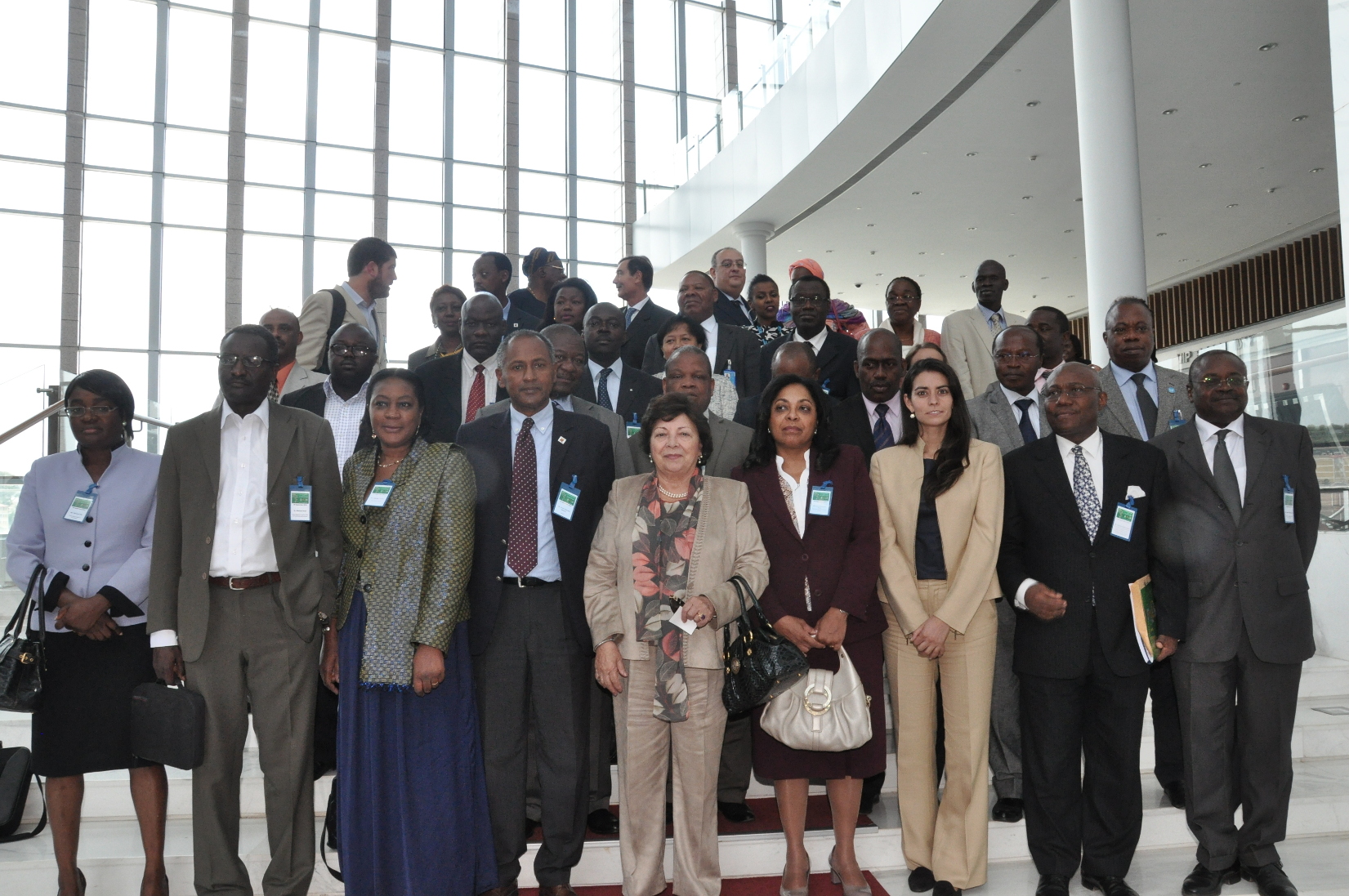
Links
FESA-UNESCO International Conference, December 12-13, 2016, Luena, Angola
Third Meeting of the Network September 11-12, 2015 in Soyo, Angola
Second Meeting of the Network, from September 21 to 24, 2014 in Yamoussoukro, Côte d'Ivoire
Network Creation Meeting on September 20, 2013 in Addis Ababa, Ethiopia
Text Resources
- Call for Papers HARIS 2 JUNE 2021
- Report of the 5th Meeting of Members of the Network held on 21 September 2019 in Angola on the sidelines of the Luanda 2019 Biennale for the Culture of Peace
- Activity Report 2019
- Program of the Luanda Biennale
- DRC the six-day war in Kisangani
- Insecurity in the Masisi in Eastern DR Congo
- General Report of the Houphouet Boigny Foundation International Conference, October 20, 2018
- RAPPORT FINAL DE LA CONFERENCE FESA-UNESCO SUR LE THEME "PREVENTION DES VIOLENCES ET PROMOTION DE LA CULTURE DE LA PAIX EN PERIODE ELECTORALE EN AFRIQUE" LES 12 ET 13 DECEMBRE 2016 A LUENA EN ANGOLA
- BULLETIN DE L’UNION AFRICAINE (UA) ET DE LA CORNE DE L’AFRIQUE (HOA) du 1er juin au 31 Août 2017
- LES STATUTS DU RÉSEAU
- RAPPORT D'ACTIVITÉS 2014 - 2015 DU RÉSEAU
- RAPPORT D'ACTIVITÉS 2015 - 2016 DU RÉSEAU
Welcoming Remarks
You are welcome to visit the website of the Network of Foundations and Research Institutions for the Promotion of a Culture of Peace in Africa.
The Network was created at the end of the Addis Ababa meeting on September 20 and 21, 2013 with a view to "creating a continental and sustainable peace movement capable of mobilizing African States, the private sector, African artists and leaders, international organizations and regional development actors as well as NGOs and grassroots associations". It is currently composed of 44 African and non-African organizations listed here.
You will find on our website articles, publications, photos and videos concerning the promotion of the Culture of Peace on the African continent. We also keep you informed about upcoming events.
